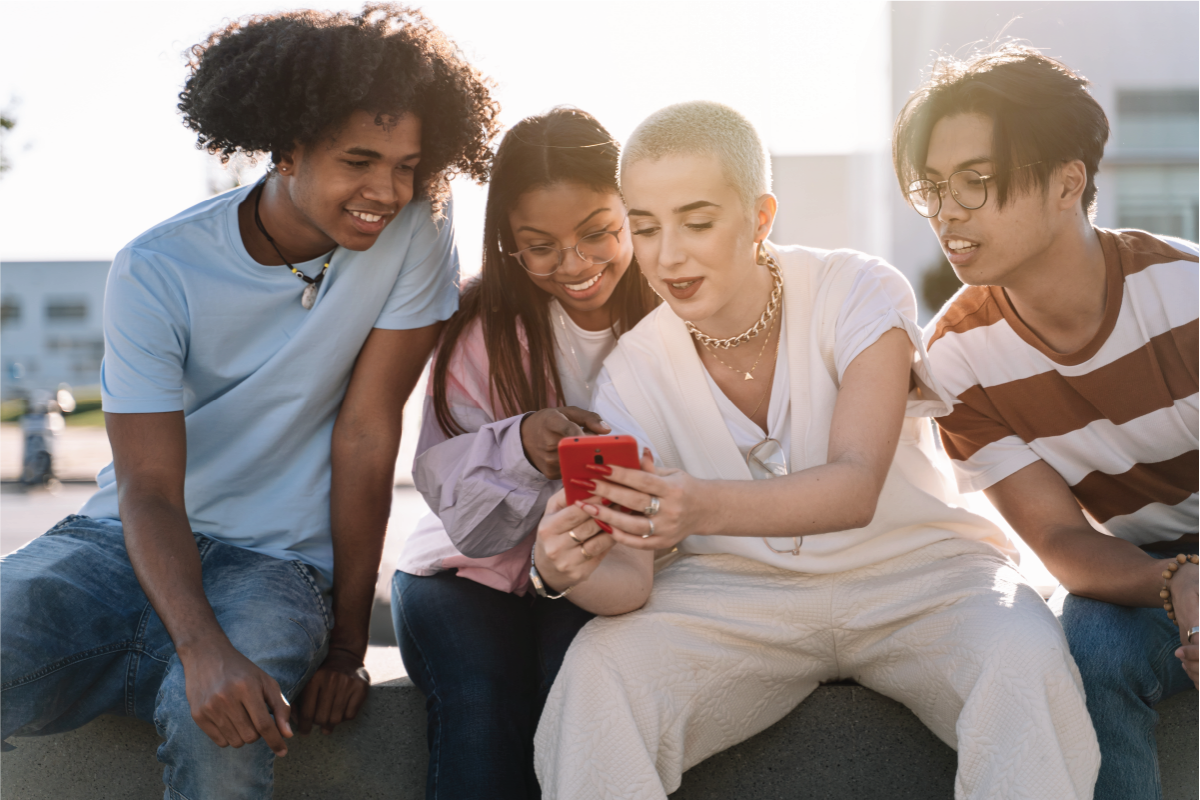
Teen Mental Health: Five Tips for Making the Most of Your Social Media Use
Social media offers meaningful opportunities for teens to learn. Continuing the Supporting Teen Mental Health series, here are five tips that reinforce them.
This post is the next in our series, Supporting Teen Mental Health, which shares tools and insights that support youth-serving adults in showing up for teens in this moment of need. Click here to read the first post in the series about mindfully managing difficult emotions.
Social media use gets a bad rap, and there are certainly reasons for caution. As shared in the U.S. Surgeon General Advisory's recent report on teen mental health, in 2020, 81% of 14- to 22-year-olds said they used social media either "daily" or "almost constantly" and in some circumstances social media use has been linked to poor mental health outcomes.
These findings may be alarming to adults who care about young people and want to protect them online, but as one teen shared with us, "To a high schooler, representation on social media is a huge deal...they don't want authority stepping into their fun zone." Even though guidance and support can be helpful, adults often lead with fear and hammer on the dangers of social media without identifying the opportunities. Yes, we all can strive to be intentional in our use of social media. Adults can model that intentionality. Adults also can reframe social media as one important tool young people and adults can use to support things that matter to them.
ACTIVE SOCIAL MEDIA USE VS. PASSIVE SOCIAL MEDIA USE
How well social media connects or isolates us depends partly on the behaviors we embody while using it. The Advisory reports on an important distinction between passive and active social media use, highlighting how healthier the latter is.
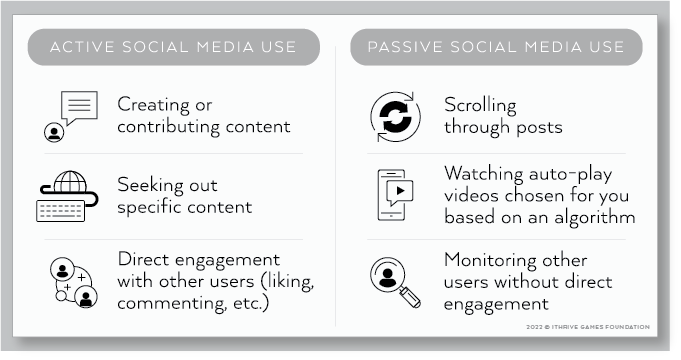
An active social media user uses its platforms to enrich and simulate real life. They use social media to connect, share and talk to the people they know, and actively engage with communities that offer new perspectives or that share their interests and hobbies. On the other hand, a passive user does not directly engage with others on social media platforms. Instead of actively interacting with others, they wait for content to come to them. Research shows that passive use of social media induces feelings of isolation, sadness, and depression often spurred by viewing the lives of others. If we're all aware of the behaviors that support more positive and healthier experiences on social media, we know which usage patterns to strive for whenever we're online.
HOW TO USE SOCIAL MEDIA ACTIVELY AND MAKE THE MOST OF IT
We spoke to a few of the teens we've worked with to co-create learning experiences for high school classrooms and asked about how they engage with and on social media. Their answers point to how social media, when reframed as a relevant tool for teens and when used actively, supports self-regulation and social connection along with the exploration of self, emotions, thoughts, and interests. Whether you're a teen or an adult, these five tips can help you make the most of social media use so you can post and peruse with purpose:

1. SET YOUR INTENTION.
Why are you going on this social media platform right now? What are you looking for or hoping to feel? If it's simply to escape and avoid anything heavy for a little while, that's valid! Since these platforms are designed to pull you in and keep you on as long as possible, just notice without judgment when your use is drifting from your initial intention and take a pause to bring yourself back to it.
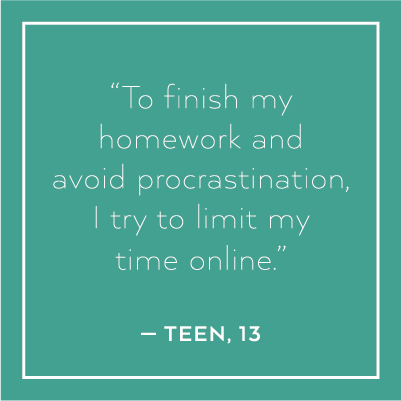
2. CONSIDER SOCIAL MEDIA USE AS ONE PART OF A HEALTHY MENTAL DIET.
Social media use can promote connection and contribute to mental and emotional health when used mindfully and in balance with other healthy behaviors like sleeping enough (7-9 hours for adults, 8-10 for teens), keeping your body moving, spending time with others in person, taking time to reflect on who you are and what you want, and more. Over a few days or weeks, notice what portion of your mental health "plate" social media takes up, and look for opportunities to continue to fine-tune your best balance.
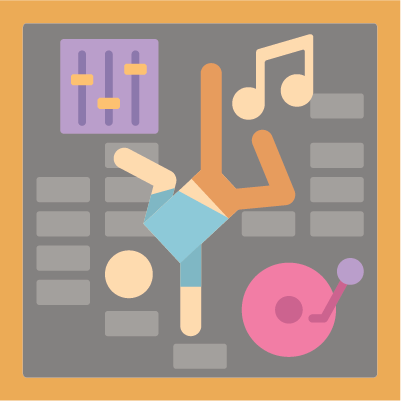
3. CREATE AND EXPRESS.
Especially for teens, social media is a great place to make content and express the many aspects of a dynamic personal identity. Try your hand at making up a dance, sharing artwork, or narrating an experience that reflects who you are and what you care about. You can also make it a point to actively appreciate content you love that others create, like by adding your comments and reactions. This can be a good first step if you typically spend your time online consuming others' content without deeper engagement.
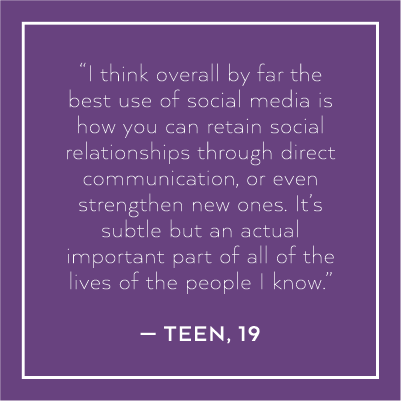
4. FIND YOUR PEOPLE.
Social media platforms connect us to the wider world. What a fantastic opportunity to both expand our perspectives and find others who help us to feel a sense of belonging. For teens, especially those struggling to find acceptance at home or in school for various reasons, reaching out for support on social media can be a lifeline. Search for (or create!) a group around a special interest. Request to join if the group is private, and then introduce yourself to get a conversation and connection started.
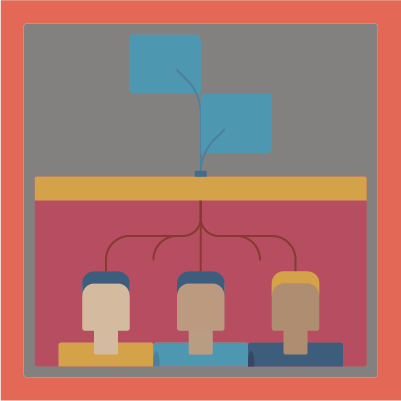
5. MAKE A DIFFERENCE.
Now more than ever, social media is a platform that can ignite support for causes that better the world. Teens are so often at the forefront of changes like these. To really level-up your social media use, start an online petition or relief fund and share it with your friends and followers, or look for opportunities others have initiated where you can lend your voice, time, and talents.
Social media offers meaningful opportunities and can be a sacred "fun zone" for teens. If you're an adult who cares about teens, reinforce those meaningful opportunities by highlighting them when you notice them. If you're a teen, consider sharing with the adults in your life about what social media allows you to do for your mental health and what intentional use looks and feels like to you.
At iThrive, we are building engaging learning experiences where teens can experiment without judgment with different ways to express themselves and connect empathically with others. To stay up-to-date on our offerings and the latest posts in the Supporting Teen Mental Health series, sign up for our mailing list today.


